Five Games Based on Horror License That Ended Up Canceled
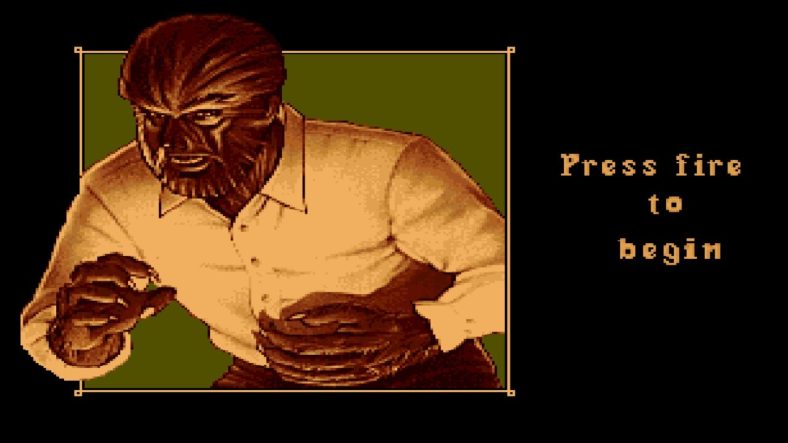
Movies have always been quick to get the video game tie-in, even the gory ghoulie ones. Today it’s Fortnite skins and Dead by Daylight DLC, yesteryear it was unlikely but oddly inventive Friday the 13th games for the NES. As square a peg stabbed into a square hole, games based on horror movies are more common than you’d think. Like, a lot more common. Begging the question: If video games based on The Dark Half made it to shelves, how many games out there haven’t? Here’s a selection of licensed horror games (that we know of) that ended in a crimson cloud of canceled vaporware.
5. Hellraiser
One of the most infamous and illustrious canceled horror games is Hellraiser. In the early 90s Color Dreams purchased the rights to develop an NES game based on Clive Barker’s ungodly gash, a bold move from a studio that did not have a license to develop games for the NES.
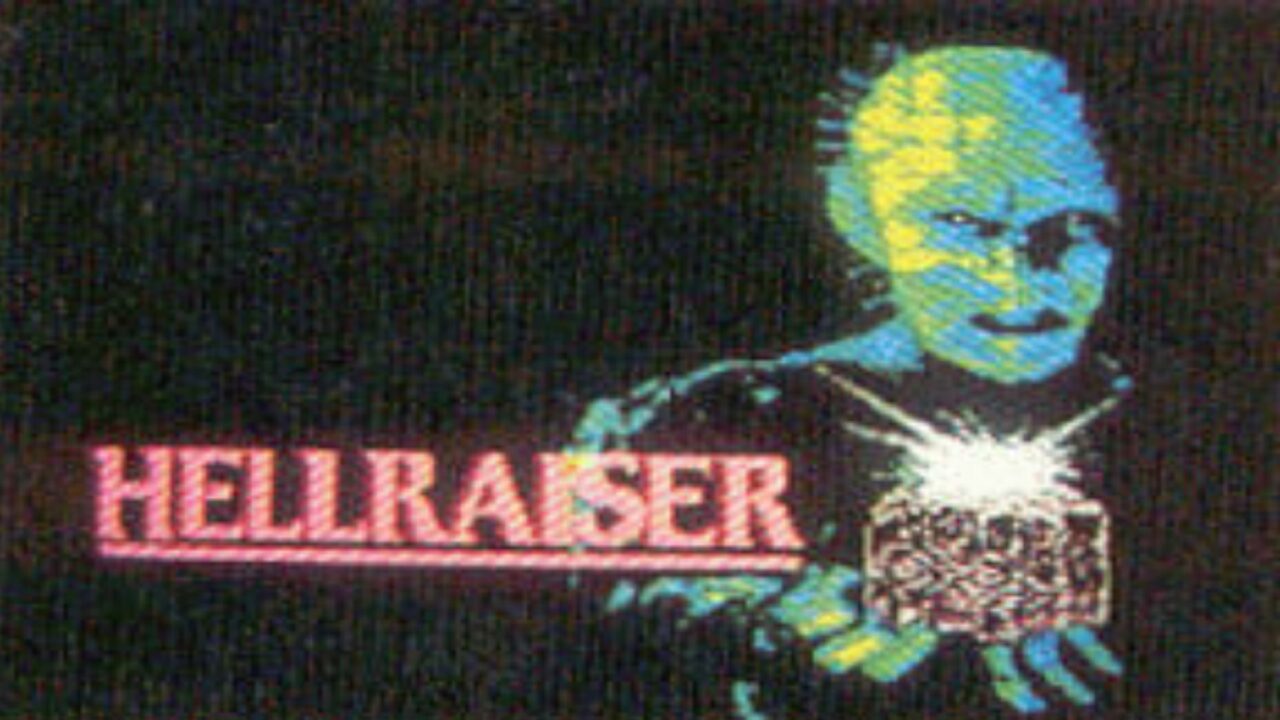
Nintendo enforced strict protocols with third-party publishers, limiting how many games they can pump out in a year. Some frustrated publishers decided to risk it with their own cartridges that could bypass the NES’ security locks. Stores that got caught selling them could be blacklisted by Nintendo. Color Dreams wasn’t the biggest name to make unlicensed cartridges. Atari, under the name ‘Tengen,’ published ports of Ms. Pac-Man, Tetris, and After Burner. Color Dreams eventually got wise and rebranded into Wisdom Tree, which made titles like Bible Adventures and King of Kings for Christian retailers that didn’t rely on Nintendo’s business. But before any of that, they wanted to make Hellraiser.
With their own cartridges, Color Dreams reportedly aimed high for Hellraiser. A 3D first-person shooter navigating the corridors and mazes of hell running on RAM beefed chips. The former staff has said that despite paying over 35K for the rights and running print ads, the game didn’t get far in development before heeling hard to Christian games. No images beyond the title screen have surfaced, never mind a prototype. Rumors say that what was once the Hellraiser game re-manifested as Wisdom Tree’s only SNES game, Super 3D Noah’s Ark, but the truth is even stranger than fiction. Noah’s Ark runs on the Wolfenstein source code, which they did get permission to use from id Software. How that happened is still up for debate. Some claim John Carmack wanted to strike back at Nintendo for censoring ports of Wolfenstein and DOOM, while John Romero said in an AMA that they thought giving the code to a bootleg bible game “would be funny.” Not mutually exclusive theories, just depends on which depth of hell you’d imagine these Bible games crawled out from.
4. Tales from the Crypt
HBO’s Tales from the Crypt unleashed a small but profound ‘Crypt-mania” upon the 90s. The late-night anthology horror series adapted from the pulp EC Comics spun off into a Saturday morning cartoon, a game show, a rap album, a pinball machine, two theatrical films, and a lot of merchandise for a shriveled toothy corpse with Richard Lewis hair. A collection of cross-promotions that feels a little hollow without that video game tie-in. But don’t worry kiddies, they came close before it was canceled.
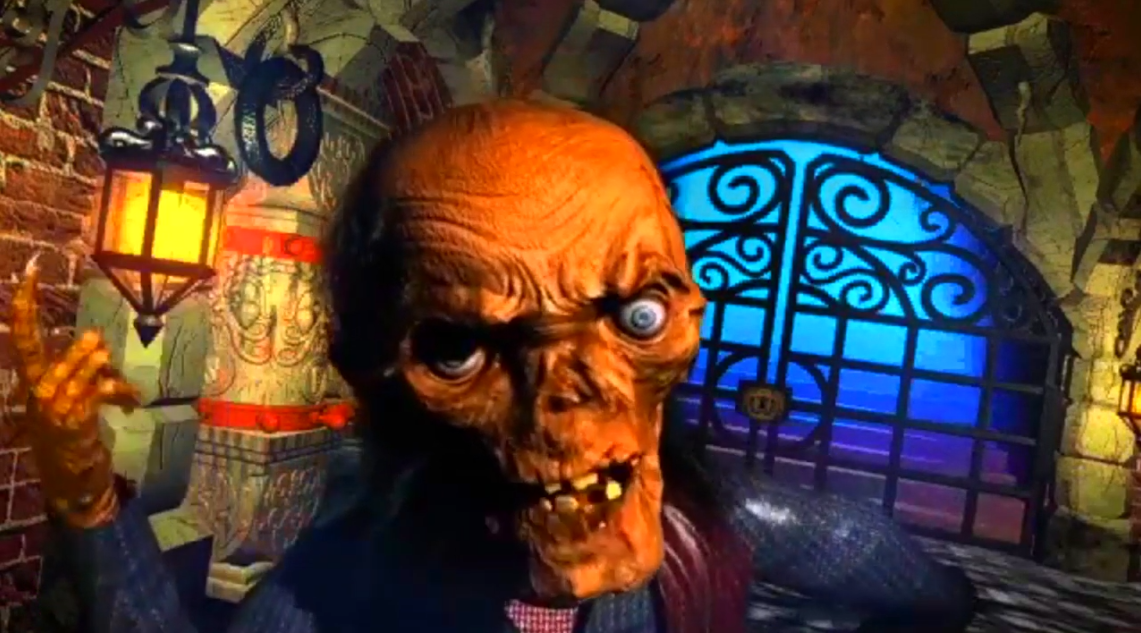
Inscape, a joint digital media venture from Time Warner and HBO, was responsible for some of the more eclectic 90s PC games. The William Burroughs-starring Edgar Allen Poe inspired The Dark Eye. Devo Presents: Adventures of the Smart Patrol. Tales from the Crypt was being handled by Jim Ludtke, best known for Bad Day on the Midway, the official game from career creepos The Residents. The Crypt game had press releases and even promotional inserts in other Inscape games, but little was known. Until recently.
Die-hard fans decided to see just how far this game came along before being entombed. The gravedigging proved fruitful. Following up with show staff like voice actor John Kassir and illustrator Mike Vosburg confirmed their involvement. In fact, Vosburg was able to supply fans not only with unused art but a disc of finished cutscenes that can now be seen on the CryptTube account.
The game would have followed Killjoy, an aspiring cartoonist pulling a graveyard shift on Halloween trying to beat a deadline. Sucked into the comic world, the Crypt Keeper offers Killjoy a gig if he can find ‘keys to success’ around his lair. The game is split into three chapters: a nautical caper ripped from the EC comics, a waxwork horror that shares a name with one of the comics but is set in a prefab ‘museum of household accidents’, and an original story involving circus animals. You could also align with rival tale tellers the Vault-Keeper and the Old Witch. The game was canceled after Inscape was acquired by Graphix Zone, a holding that went bankrupt soon after.
3. Antichrist
Folks, can you imagine? Can you imagine?? Imagine they really made a video game tie-in to Lars von Trier’s eros nightmare and the first chapter in his ‘depression series.’ The game, titled ‘Eden,’ was announced in 2009, the same year as Antichrist’s release, and was to be directed by Morten Iversen, writer on the original Hitman games.
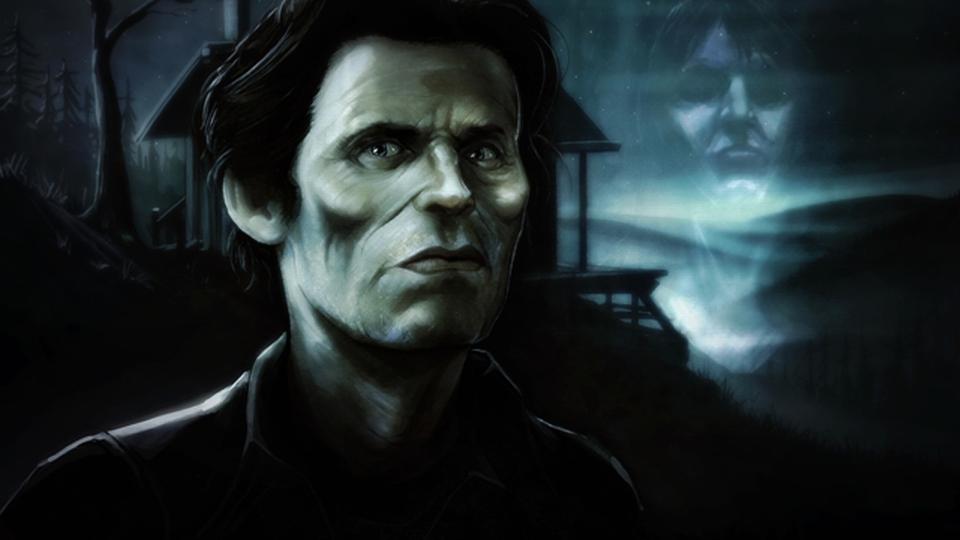
The game was to serve as a sequel to Antichrist, following Willem Dafoe’s character as he journeys back into the woods to reassess the surreal events of the film. The game reportedly quizzed the players on their own fears to create a psychological profile that would influence the frights. Von Trier had a hands-off role as he tinkered away on Melancholia, but would have had creative impunity on the final product. While concerns that there may not be a big enough overlap of gamers and Trier-heads to justify the project were valid, what ultimately canceled the game was money troubles for their parent company, Zentropa, in 2011. Iversen returned to the Hitman series, where you do more conventional things with bladed weapons.
2. Universal Monsters
British studio Ocean Software became a powerhouse after fully embracing movie licenses. Games based on Batman, Robocop, and The Addams Family hoisted Ocean from an arcade port shop to a fairly lauded U.K. developer. On a hot streak of platformers and arcade action, Ocean decided that they’d finally give an isometric puzzle adventure a shot, a genre extremely popular with microcomputer competitors like Rare. Meanwhile, Universal Pictures was gearing up to celebrate the 50th anniversary of the famed monster movies that built the studio, Frankenstein, Dracula, Wolfman, Mummy, and Creature of the Black Lagoon. A deal was struck for games on the Amiga and Atari ST.
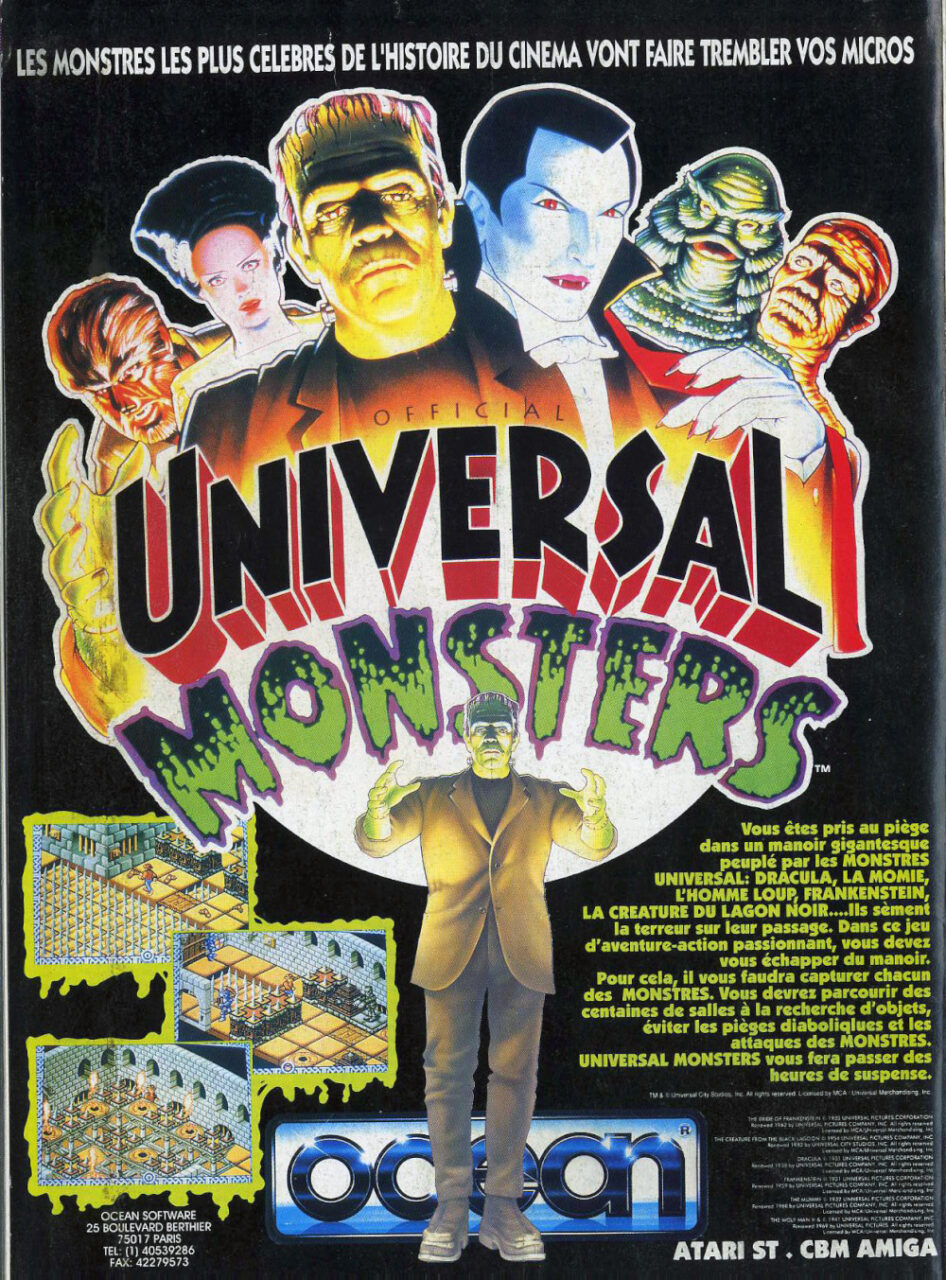
Universal Monsters would have had you as an Indiana Jones-fashioned adventurer exploring castles and caverns, evading traps, overcoming puzzles, and confronting each of the legendary ghouls. The game looked lively and colorful, and early copies sent to critics in 1992 resulted in praise. However, Universal was apparently unsatisfied with the squat, cartoonish renditions of their creatures. All the while Ocean was becoming cynical that Universal’s celebration wasn’t going to extend beyond merchandise and Nabisco cookies, more comfortable shipping games tied to a feature film. Lead programmer Mike Halsall transferred to another studio and the license expired before the finishing touches could be made, which canceled the game and buried Universal Monsters back in the grave.
1. Tremors
Ripping up from the ground in 1990, the Kevin Bacon horror-comedy became an unlikely hit, spawning a seemingly unending brood of sequels and spin-offs about the graboid menace. In 2002 a new Swedish team called Rock Solid Studios announced they would be adapting the tunneling terrors into a video game for the PlayStation 2, Xbox, and GameCube. Its launch was timed with the short-lived 2003 TV series, but the story was reported to exist independent of it, following a different set of heroes who have to watch where they step.
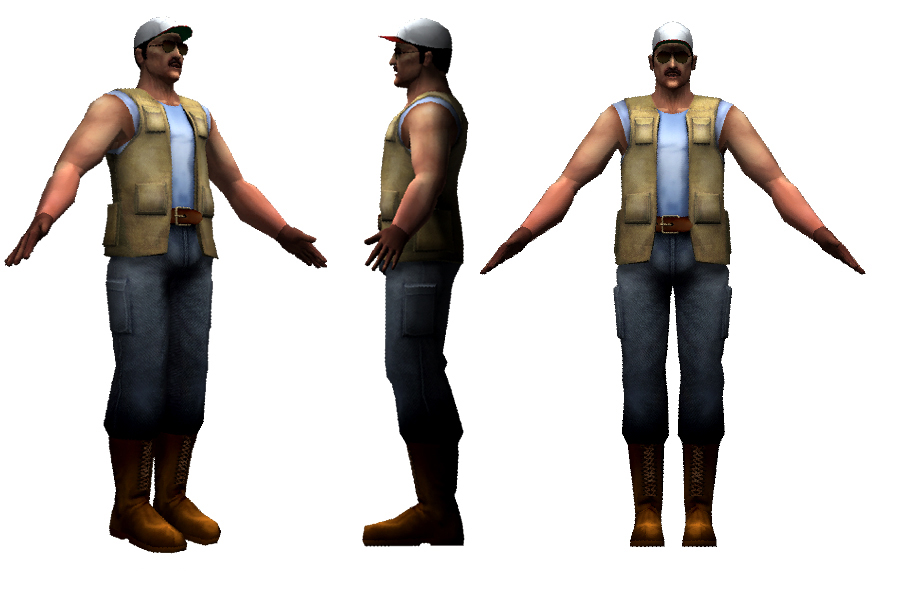
Rock Solid Studios Resident Evil, Splinter Cell, and Metal Gear Solid as the basis for their Tremors game. Manage resources, slink around dustbowls, and try to survive encounters with subterranean worm critters. The project was canceled because of a number of forces. The TV show didn’t do especially well, Rock Solid ran out of money and stumbled out of an unsuccessful acquisition from Starbreeze Studios, then working on the critically acclaimed Chronicles of Riddick games. The Tremors project didn’t work out and Rock Solid never published a title, but there was a happy ending. Several of the staff decided to rebrand themselves as Avalanche Studios, who continue to develop the Just Cause series to this day.
Categorized:Editorials

